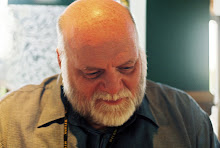Endings I
This and the next two posts are from a document that I pulled together from a small collection of my assessments of patients. It was interesting to see them together as one document and I thought my readers might find it interesting as well.
Pt. was deeply reflective today, talking almost non-stop through the entire visit. The conversation turned to his most private and precious dreams concerning his belief that he was called to minister. The pt has elaborate dreams of ministry that display a generous spirit and deep need for recognition. There was in this session a sense of bargaining as if he were offering his dreams as something he would carry out if God would give him time. From time to time the pt was teary and wiped his eyes when he spoke of his dreams.
The pt also needed reassurance that his sins were forgiven and God loved him. He may have believed that his disease was punishment but changed his mind thinking, perhaps that it is a mire from which God will raise him to prove to others that miracles can occur if one has faith.
_____________
This patient is difficult to assess because of her advanced stage of brain disease. She is an accomplished artist yet she states that she can no longer make art because she “wouldn’t know where to begin anymore.” This tells the chaplain that her greatest skills of deep expression are no longer available to her. When asked questions for spiritual evaluation such as “What do you hope for,” the pt gets lost in thought and fails to reply unless prompted. At the more shallow level of religious training she affirms that she wants to go to heaven but after stating so, she returns to absently picking at specks and lint within her view. Prayer comforted the pt and the chaplain sensed that his presence was comforting as well.
The pt’s Patient Care Giver was responsive to the chaplain as well but as a lapsed Catholic and a nominal church attendee has few religious skills. He was, however, open to the chaplains comments and listened carefully to chaplain’s words. When the chaplain offered him support, he began weeping and excused himself ending the visit.


3 Comments:
Ken, thanks for your posts. I have had two friends work as hospital chaplains (one specifically a pediatrics chaplin--rough stuff), my girlfriend is a resident neurologist, and I'm a philosopher-in-training focused on religion.
So... your stories strike chords and remind me of the life-and-death-ness of these ideas we throw about, and the medicines we prescribe, and words we use.
Keep it up!
I have nothing substantive to say about these posts other than I find them compelling and really hope that you'll post more like them.
I am so excited to come across your blog and will link to it from my sight. My blog is from the perspective of working as a nurse with patients who are dying. I utilize (refer to) hospital chaplains all of the time and find their service invaluable. I am so pleased to get to hear about these experiences from your perspective. I hope you will continue to share your stories.
Post a Comment
Subscribe to Post Comments [Atom]
<< Home